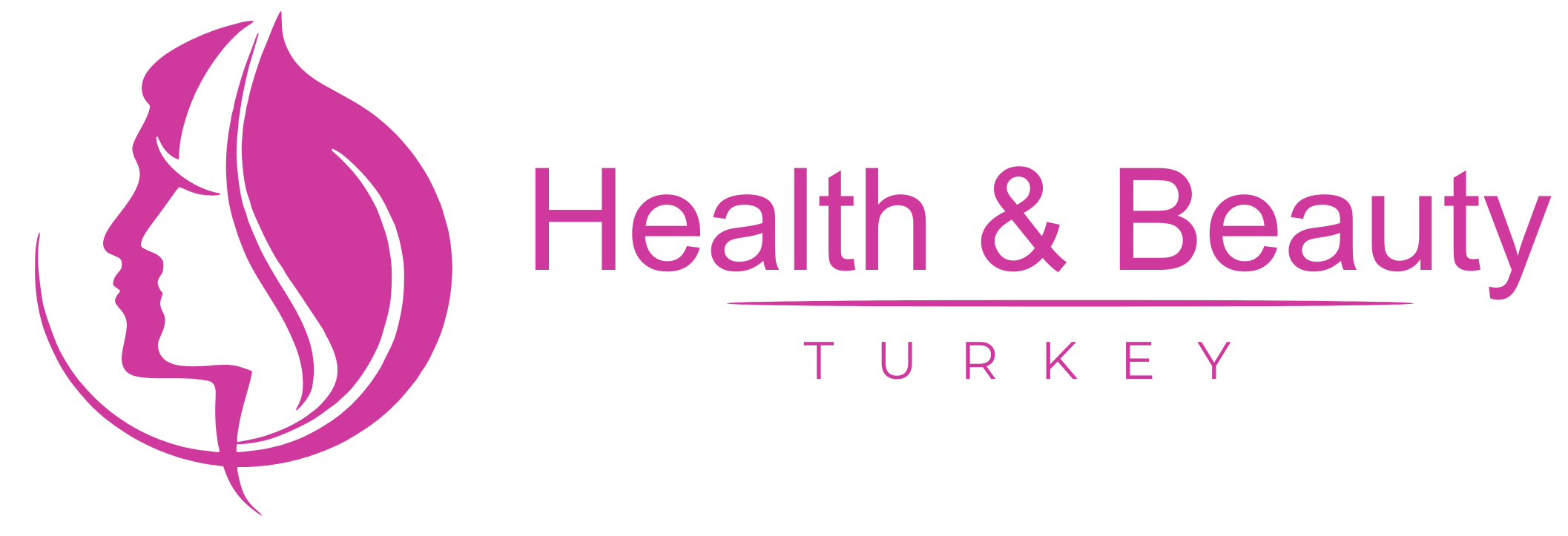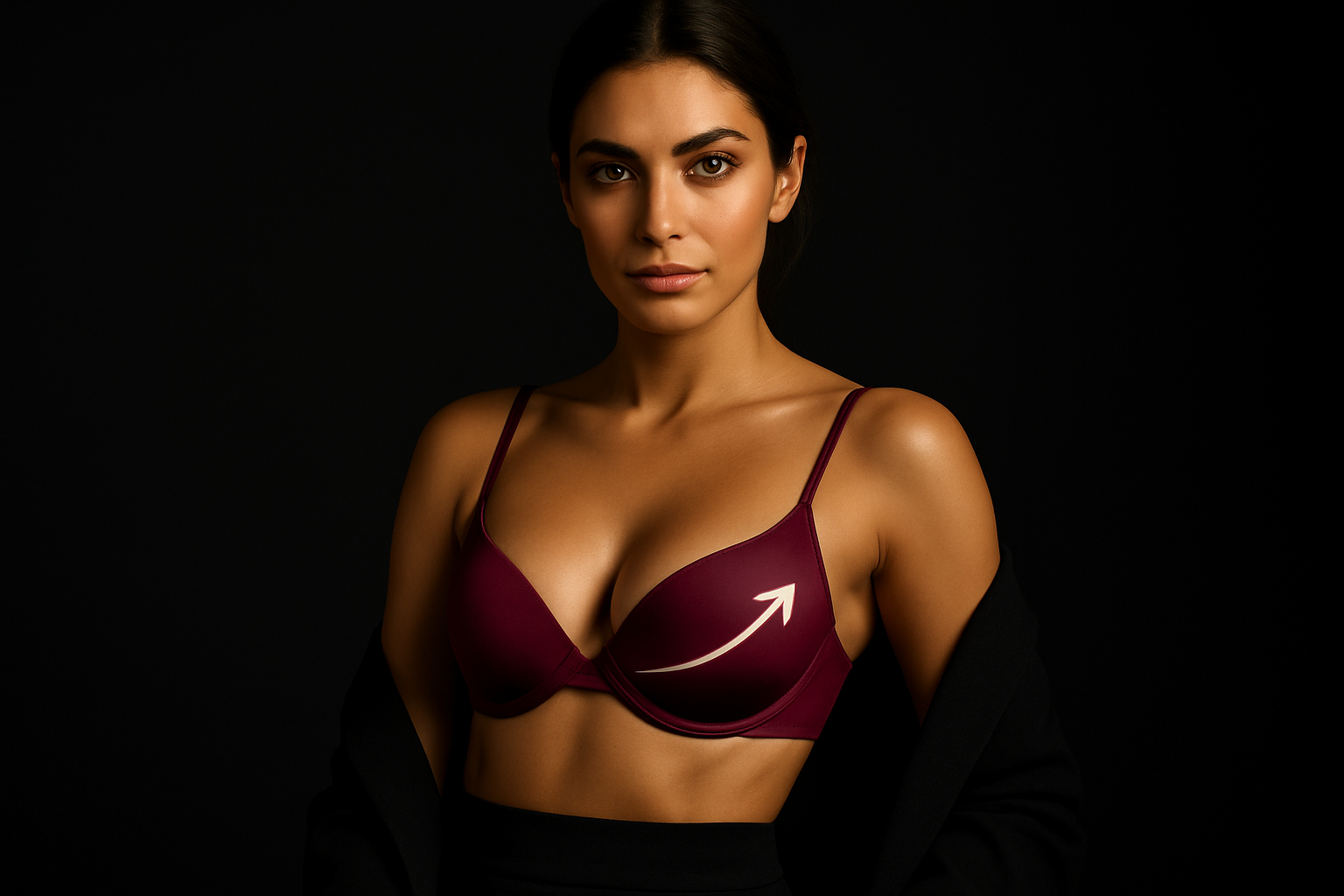Introduction
The breast is an important part of a woman’s femininity and beauty. Women often look for ways to enhance its shape, restore its volume after childbirth or weight loss, or even reconstruct the breast after a mastectomy. In this context, breast implant surgery emerges as an effective and popular solution, and Turkey leads the list of preferred global destinations for these procedures due to its superior medical expertise, modern techniques, and competitive prices.
However, the pivotal question that occupies the minds of many remains: Where are breast implants placed?
Understanding the optimal placement for implants is the key to achieving natural, aesthetically pleasing results, as well as ensuring safety and minimizing the risk of complications. At “Health & Beauty Turkey,” we fully understand these concerns and strive to provide comprehensive and accurate information, emphasizing that our experts in Turkey follow the latest medical protocols to ensure the best possible outcomes.
Medical Understanding of Breast Implants: Basics and Innovations
What is a breast implant (breast augmentation)?
Breast implant surgery, also known as breast augmentation or breast enhancement, is a surgical procedure aimed at increasing the size and shape of the breast using special implants. It can be performed for purely cosmetic reasons or to reconstruct the breast after a mastectomy due to cancer (breast reconstruction surgery).
Reasons and risk factors that lead to the question “Where are breast implants placed?”
Several reasons may lead a woman to consider breast implants, including:
- Small breast size: Dissatisfaction with the natural breast size.
- Breast asymmetry: A significant difference in size or shape between the breasts.
- Volume loss after pregnancy and breastfeeding: Sagging breasts and loss of volume after periods of pregnancy and breastfeeding.
- Weight loss: Changes in breast shape and size after significant weight loss.
- Breast reconstruction: After surgical removal of the breast due to breast cancer.
- Correction of congenital defects: In rare cases, there may be congenital deformities in the shape of the breast.
Symptoms and indicators that may call for breast implants
Often, the “symptoms” here are psychological and emotional, related to self-confidence and a woman’s satisfaction with her appearance. However, from a medical standpoint, there may be indicators that require a thorough medical evaluation, such as:
- Dissatisfaction with the current shape or size of the breast.
- A feeling of lost self-confidence due to the appearance of the breast.
- The desire to restore the shape of the breast after natural changes.
Diagnosis and Medical Evaluation
Before deciding on breast implant surgery, the specialist doctor conducts a comprehensive evaluation that includes:
- Detailed Medical History: This includes past illnesses, surgeries, medications used, and a family history of breast diseases.
- Clinical Examination: The doctor examines the breasts, assessing their size, shape, skin elasticity, and the presence of any lumps or changes.
- Discussion of Expectations: Understanding the patient’s expectations from the surgery and explaining the expected results and possible limitations.
- Imaging Tests: The doctor may request a mammogram or ultrasound, especially for women over a certain age or those with a family history of breast disease, to ensure the breasts are free of any health problems.
Latest Research and Modern Developments
Breast implant technologies are constantly evolving. Recent research focuses on:
- Safer implant materials: Developing higher-quality implant materials and reducing the likelihood of complications such as capsular contracture or rupture.
- Innovative surgical techniques: Such as “endoscopic implant” techniques to reduce scarring and recovery time, and “thread breast lift” techniques as a non-surgical alternative for some cases.
- A deeper understanding of the relationship between breast implants and cancer: Ongoing research to monitor any potential links, while emphasizing that breast implants do not increase the risk of breast cancer but may slightly affect mammogram readings, requiring special imaging techniques.
- Advanced breast implants: Developing implants with a more natural feel and shape, and higher resistance to leakage or rupture.
Who are the Ideal Candidates for Breast Implant Surgery?
Not all women are ideal candidates for breast implants, and the specialist doctor determines the patient’s suitability based on several criteria:
General Criteria for Good Candidates:
- Good General Health: The patient must be in good overall health and not suffer from chronic diseases that could hinder the healing process or increase surgical risks (such as unstable heart disease, uncontrolled diabetes, or active autoimmune diseases).
- Psychological Stability: The patient must be psychologically stable, have realistic expectations of the surgery, and be undergoing the procedure to please herself, not under external pressure.
- Completed Breast Development: It is preferable for the patient to have reached adulthood and for her natural breast development to be complete.
- Desire to Improve Appearance: The primary motivation should be the desire to improve the shape or size of the breast.
- Commitment to Post-Surgical Instructions: Willingness to follow the doctor’s instructions meticulously during the recovery period.
Who Should Avoid or Postpone Breast Implants?
- Pregnancy and Planning for Pregnancy: It is advisable to postpone the surgery until after childbearing and breastfeeding are complete, as pregnancy can change the size and shape of the breasts again, which may affect the implant results.
- Obesity: It is often recommended to lose excess weight before the surgery to achieve better results and reduce risks.
- Certain Active Autoimmune Diseases: Such as rheumatoid arthritis or systemic lupus erythematosus, as these conditions may increase the risk of complications.
- Recent History of Breast Cancer: A certain period of time is usually required after breast cancer treatment before considering breast implants, to ensure the disease has not returned.
- Unclear History or Undiagnosed Lumps in the Breast: It is essential to ensure the breast is completely free of any health issues before undergoing a cosmetic procedure.
- Women with Unrealistic Expectations: It is important for the patient to be fully aware of the possible outcomes and limitations.
Preparing for Breast Implant Surgery: Your Steps Towards a Successful Treatment Journey
Breast implant surgery requires good planning and careful preparation to ensure the best results and minimize risks.
Before Traveling to Turkey: Important Tips
- Research and Selection: Choose a reputable medical center and a specialized, experienced surgeon in breast implants. At “Health & Beauty Turkey,” we assist you in this choice by providing doctor profiles, before-and-after photos, and patient reviews.
- Early Communication: Contact our medical representatives to discuss your case and provide them with the necessary medical information.
- Initial Consultation (Remote): An initial consultation is often conducted via video call with the surgeon to assess your condition, answer your questions, and determine the appropriate implant type and placement.
- Booking Appointments: Consultation, examination, surgery, and follow-up appointments are scheduled.
- Travel and Accommodation Planning: We organize flight bookings, hotels, and transportation to and from the airport, providing a personal interpreter when needed.
Necessary Medical Tests:
Before surgery, you will be asked to undergo some tests to ensure you are in good health for the procedure:
- Complete Blood Count: To assess kidney and liver function, blood sugar levels, anemia, and coagulation.
- Electrocardiogram (ECG): Especially for those over a certain age or with a history of heart problems.
- Breast Examination: May include a mammogram or ultrasound, especially for those with a family history or over the age of forty, to ensure there are no issues with the breasts.
- Pregnancy Test: For women of childbearing age.
Lifestyle Tips Before Surgery:
- Quit Smoking: You must stop smoking for several weeks (usually 4-6 weeks) before surgery because smoking negatively affects wound healing and increases the risk of complications.
- Avoid Certain Medications and Supplements: Consult your doctor about which medications and dietary supplements to avoid, such as aspirin, non-steroidal anti-inflammatory drugs (NSAIDs), some herbal supplements, and vitamin E, as they can increase the risk of bleeding.
- Maintain a Healthy Diet: Eat foods rich in vitamins and minerals to support your immune system and the healing process.
- Get Enough Sleep: To boost your overall health and prepare for surgery.
Before the Operation: Final Preparations
On the day before or the morning of the surgery, the final steps are taken to ensure the patient is ready:
- Final Consultation with the Surgeon: To discuss the final details, answer any remaining questions, determine the final implant placement, take breast measurements, and clarify the surgical plan.
- Signing the Surgical Consent Form: After ensuring you fully understand the procedure, risks, benefits, and alternatives.
- Preparation in the Operating Room: The patient is given a surgical gown, an IV line is placed, and the surgical area is marked.
- Anesthesia: The type of anesthesia is chosen in consultation with the anesthesiologist, and it is often general anesthesia or local anesthesia with sedation.
During the Operation: The Techniques Used
Here comes the essence of the question: Where are breast implants placed? The answer depends on multiple factors and is determined by the surgeon with great care.
Implant Placement Locations (Definitive Placement):
There are two main locations for placing breast implants:
- Above the Pectoral Muscle (Subglandular Placement / Pre-pectoral):
- Description: In this location, the implant is placed directly behind the breast gland tissue and skin, but in front of the pectoralis major muscle.
- Advantages: A surgically easier and quicker technique, the initial recovery period may be less painful, suitable for women who have enough breast tissue to cover the implant naturally, and may reduce the risk of some complications like “pseudoptosis.”
- Disadvantages: The implant may be more visible in texture and shape, especially in women with thin tissue, it may slightly increase the long-term probability of capsular contracture, and it may have a greater impact on mammogram readings.
- Who is it for? Women with sufficient fatty and glandular tissue in the breast.
- Under the Pectoral Muscle (Submuscular Placement / Retromuscular):
- Description: In this location, the implant is placed behind the pectoralis major muscle. The implant can be fully covered by the muscle (Dual Plane technique) or partially.
- Advantages: Provides better coverage for the implant, giving a more natural appearance and reducing the likelihood of feeling or seeing the implant, significantly reduces the risk of capsular contracture, facilitates mammogram readings, and is better for preventing “pseudoptosis” (breast drooping with the implant).
- Disadvantages: The surgery may be longer and more complex, it may cause more pain in the initial recovery period, and it might lead to some changes in the movement of the pectoral muscle.
- Who is it for? Women with thin tissue, those who want a more natural look, or those with a history of capsular contracture.
“Dual Plane Technique”:
This technique is considered the most common and preferred by many surgeons today. It combines the advantages of the previous two placements.
Description: The upper part of the implant is placed under the pectoral muscle, while the lower part is placed above the muscle (behind the breast tissue).Advantages: It achieves a perfect balance between getting a natural look (due to the muscle covering the upper part) and providing natural movement for the breast (due to the natural breast tissue over the lower part), while reducing the risk of complications.
Types of Surgical Incisions:
The surgeon chooses the incision site based on their preference, the type of implant, and the patient’s condition:
- Inframammary Fold Incision: Placed in the natural crease of the breast. It is the most common, allows for good visibility of the surgical area, and hides the scar well.
- Periareolar Incision: Placed around the colored part of the nipple (the areola). It hides the scar well but may slightly increase the risk of mammary gland inflammation or loss of nipple sensation.
- Axillary Incision: Placed in the underarm area. It leaves the breast free of scars but requires a special technique (like an endoscope) and may increase the risk of lymph node swelling.
- Transumbilical Breast Augmentation (TUBA): A very rare technique used for saline implants, where the implant is inserted through an incision in the navel. It requires very high expertise and may carry greater risks.
Type of Implants:
- Silicone Implants: Filled with silicone gel. They come in various shapes and sizes and offer a natural look and feel.
- Saline Implants: Filled with a sterile saline solution. They are inserted empty and then inflated after placement. They may be an option for those concerned about silicone leakage but can be less natural in feel.
- Autologous Fat Grafting: Fat is liposuctioned from another area of the body (like the abdomen or thighs) and then injected into the breast. It is an option for those who want a slight increase in size and shape restoration, not for those looking for a significant increase.
After the Operation: Immediate Care and Recovery
Post-surgery care is essential for achieving the best results and avoiding complications.
Immediate Recovery:
- Monitoring Vital Signs: After waking up from anesthesia, your vital signs will be closely monitored.
- Pain Relievers: You will be given medication to relieve pain.
- Dressings and Compression Bandage: Special dressings and a compression bandage will be placed around the breasts to support them and reduce swelling.
- Mobility: You may be asked to walk short distances to stimulate blood circulation.
Home Recovery Period:
- Rest: Get plenty of rest and avoid physical exertion.
- Wear the Surgical Bra: It is very important to support the breasts and reduce swelling.
- Wound Care: Keep the wounds clean and dry and follow the doctor’s instructions for changing dressings.
- Avoid Lifting Heavy Objects and Strenuous Activities: Usually for 4-6 weeks.
- Avoid Sleeping on Your Stomach: Sleep on your back or side.
Stages of Healing and Expected Results:
- First Week: Feeling pain, swelling, and bruising is normal.
- Weeks 2-4: Pain and swelling begin to subside gradually, and you can return to light activities.
- First to Third Month: The shape of the breast begins to stabilize, and the scars become less visible.
- Sixth to Twelfth Month: Healing is complete, and the results are considered final.
Modern Treatment Options and Innovations in Turkey
Turkey excels in offering the latest technologies in the field of breast implants, ensuring natural and safe results.
Innovative Techniques Used in Turkey:
- Endoscopic Breast Augmentation: Allows the operation to be performed through a small incision using a tiny camera, which reduces scarring and speeds up recovery.
- Precise Positioning Techniques: Using 3D imaging and surgical navigation devices to ensure the implant is placed in the ideal location.
- Nanotexture Implants: Implants with a very fine surface that significantly reduce the likelihood of capsular contracture and provide a natural look and feel.
- Modern Anesthesia Techniques: Using anesthetic drugs that reduce pain and nausea after surgery.
- Use of Stem Cells and PRP (Platelet-Rich Plasma): In some cases, these techniques may be used to enhance healing and improve tissue quality.
Advantages of Having Breast Implant Surgery at “Health & Beauty Turkey”:
- Qualified Medical Teams: Board-certified surgeons specializing in cosmetic surgery with extensive experience in breast implants.
- Equipped Medical Centers: Using the latest technologies and equipment in world-class hospitals.
- Customized Treatment Plan: Designing a treatment plan that suits the needs of each patient individually.
- Focus on Safety: Applying the highest standards of safety and sterilization, while providing “Medical Tourism Health Insurance.”
- Comprehensive Experience: Integrated services that include everything a woman needs from the moment she arrives until she departs.
Addressing Patient Concerns: “Medical Tourism Health Insurance”
At “Health & Beauty Turkey,” we understand that thinking about a surgical procedure may raise some concerns for patients, especially regarding unexpected complications. Therefore, we place the utmost importance on ensuring your peace of mind and reassurance.
What is Medical Tourism Health Insurance?
To alleviate any potential anxiety about complications that may occur after surgical procedures (like breast implants), we offer our clients “Medical Tourism Health Insurance,” which is an additional insurance coverage specifically designed to ensure your safety and comfort.
Features of the Insurance Coverage:
- In-Hospital Treatment Coverage: This insurance covers the costs of treatment and medical care within the hospital in the event of any complications requiring hospitalization after the surgery.
- Coverage Duration: The insurance is valid for a full six months starting from the date of the operation, giving you a sufficient coverage period during the initial recovery phase.
- Re-Surgery Coverage (If Necessary): If complications necessitate a corrective or revision surgery, this insurance covers its costs.
- Travel and Accommodation Costs Coverage: If you need to have re-surgery, the insurance also covers the necessary travel and accommodation costs to return to Turkey for this surgery, ensuring you receive the required care from the same medical team that performed the original operation.
- Limited Applicability: This insurance is only available at clinics and hospitals certified by the Turkish Ministry of Health, ensuring that you undergo treatment in a reliable and safe medical environment that adheres to the highest standards.
This insurance coverage is part of our commitment to providing a comprehensive and safe treatment experience, enabling you to make your decision with complete confidence.
Practical Tips for Medical Travelers
Your medical journey in Turkey will be comfortable and organized thanks to these tips:
Travel Tips:
- Visa: Check the visa requirements for entering Turkey based on your nationality. We can help you get the necessary information.
- Airport: We will provide you with an airport pickup service in a private car.
- Accommodation: We have partnerships with comfortable hotels close to medical centers.
- Clothing: Bring comfortable, loose-fitting clothes, especially those that open from the front.
- Personal Hygiene Items: You may need some over-the-counter medications, such as mild pain relievers and antacids.
- Communication: Make sure your mobile phone will work in Turkey, or purchase a local SIM card.
Psychological Preparation:
- Speak Openly: Do not hesitate to discuss any concerns or questions with your doctor or medical representative.
- Support: If possible, ask a friend or relative to accompany you on the trip.
- Relaxation: Plan simple and relaxing activities to unwind after consulting with the doctor, like reading a book or watching a movie.
Lifestyle Tips After Treatment:
- Adhere to the Doctor’s Instructions: This is the most important tip of all.
- Good Nutrition: Focus on a healthy diet to support healing.
- Hydration: Drink plenty of water.
- Light Exercise: Consult your doctor about when you can start light walking, which is important for circulation.
- Follow-up Appointments: Do not miss any scheduled follow-up appointments, as they are essential for assessing your healing progress.
- Sun Exposure: Avoid direct sun exposure on the scar areas for a long time.
- Patience: Remember that the final results take time to appear, so be patient.
Why Choose “Health & Beauty in Turkey”?
At “Health & Beauty in Turkey,” we place your safety and satisfaction at the forefront of our priorities.
- Expertise of Doctors: We collaborate only with the best cosmetic surgeons in Turkey, who hold international certifications and have long experience in the field of breast implants.
- Comprehensive Service: We offer an integrated package that includes:
- Booking consultation and surgery appointments.
- Organizing travel and accommodation.
- Airport reception and transportation.
- Simultaneous translation services.
- Medical follow-up before and after the operation.
- Safety and Trust: With “Medical Tourism Health Insurance” and adherence to international standards, we guarantee you a safe and reliable treatment experience.
- Transparency: We provide clear information about all procedures, costs, and potential risks.
- Natural Results: We focus on achieving results that look natural and suit your body’s proportions.
Price of Breast Implant Surgery in Turkey
The cost of breast implants in Turkey varies based on several factors, including:
- The surgeon’s experience and reputation.
- The reputation of the hospital or medical center.
- The type of implants used (silicone, saline, brand of implant).
- The surgical technique used (above the muscle, under the muscle, dual plane).
- The need for additional procedures (such as a breast lift).
- Optional insurance coverage.
- The comprehensive treatment package (includes accommodation, transportation, interpreter, etc.).
In general, the average price of breast implants in Turkey ranges from $2,500 to $5,000. This price often includes the implants, the surgery, the hospital stay, and post-operative care.
It is important to emphasize that very low prices may be an indicator of the use of lower-quality implants or unaccredited centers. At “Health & Beauty in Turkey,” we are keen to offer the best value for money, while guaranteeing the highest standards of quality and safety.
The decision to undergo breast implant surgery is a personal and important one, requiring careful selection of the destination and surgeon. Turkey offers a unique combination of advanced medical expertise, modern technologies, and affordable prices, while providing a complete medical tourism experience.
At “Health & Beauty in Turkey,” we are committed to providing the highest levels of care and support, from the initial consultation to the full recovery journey. Our medical and specialized team is fully prepared to answer all your inquiries, provide the necessary advice, and design a treatment plan that suits your needs and aspirations.
Don’t let anxiety stop you from achieving your dream. With “Health & Beauty in Turkey,” you can rest assured about your safety, trust in the quality of treatment, and enjoy natural and beautiful results that last a long time.
Are you ready to take the first step towards greater self-confidence?
Contact our medical representative today for a free consultation and a personal assessment of your case. We are waiting for you in Turkey to begin your transformation journey towards the most beautiful you!




